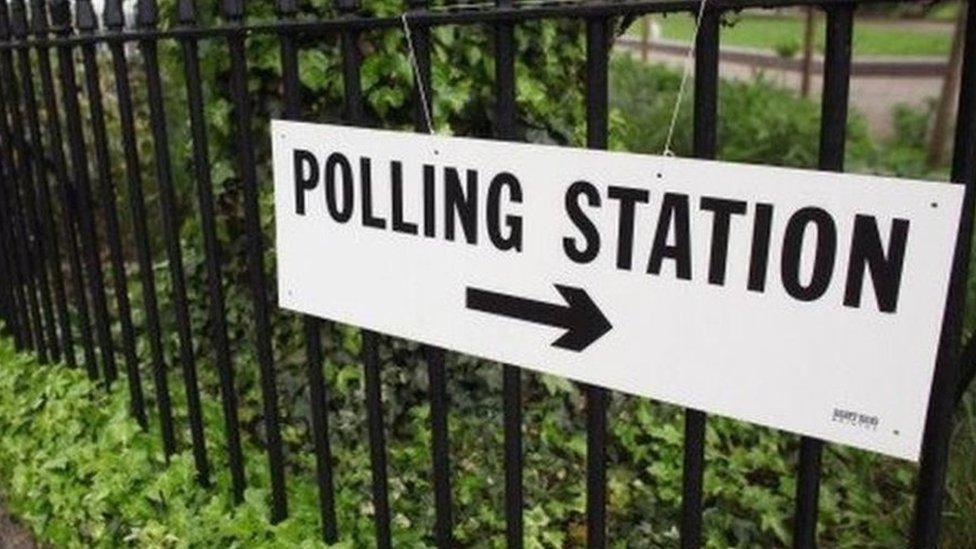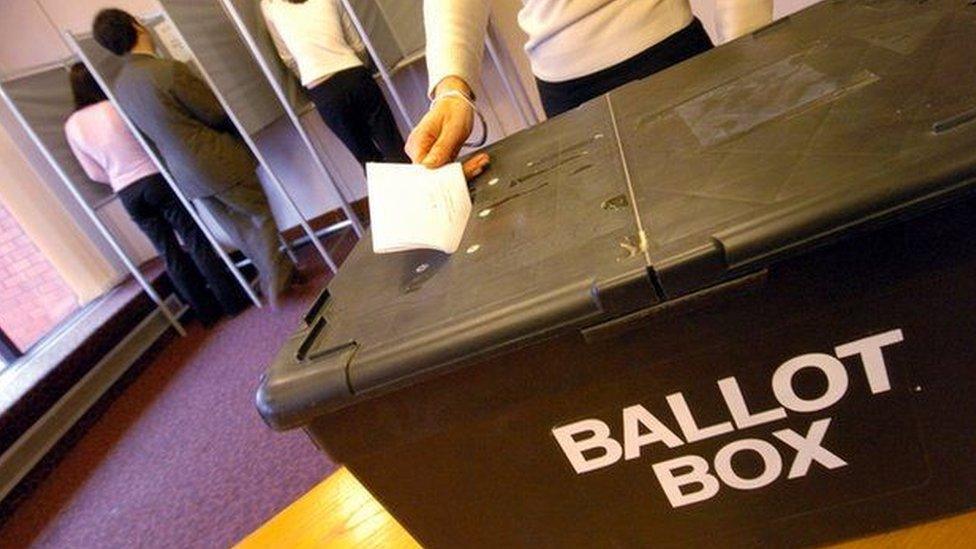Surge in proxy votes in Northern Ireland
- Published

The biggest increases came in mainly nationalist constituencies
There has been a surge in the number of people in Northern Ireland allowing others to vote on their behalf.
Just under 10,000 proxy votes were cast in the last Assembly election in March.
That figure was almost double the figure for the Westminster poll in 2015. The biggest increases came in mainly nationalist constituencies.
Fermanagh and South Tyrone topped the list with more than 1,500 proxy votes recorded and it was followed by Newry and Armagh with just over 1200.
Lagan Valley had the lowest number of proxy votes at 136. By comparison in the last Assembly election in Wales, there were just 3,000 proxy votes.
'Difference between winning and losing'
Professor of politics Rick Wilford said the increase in proxy voting was significant.
"We don't know which parties were the beneficiaries of the proxy votes but as a means of getting the vote out, I think all the parties are recognising their significance, some parties more than others," he said.
"I think it is going to matter a lot in some of the constituencies like South Belfast, Fermanagh South Tyrone and South Antrim where the parties are going to pay particular attention to this aspect of the electoral process."

To vote by proxy you must complete an application form setting out the reason why you cannot vote in person at a polling station
Prof Wilford believes proxy votes could mean the difference in winning and losing a seat at Westminster.
"The most marginal seat of all is Fermanagh and South Tyrone where the winning margin last time for Tom Elliott was just over 500 votes," he said.
"I think all the parties are going to throw everything including the kitchen sink at getting all their votes out. I think the effort that is going into mobilising and galvanising supporters will include voting by proxy."
'Genuine'
To vote by proxy you must complete an application form setting out the reason why you cannot vote in person at a polling station.
The Electoral Office of Northern Ireland said all applications are checked to ensure the applications are genuine.
A spokeswoman said: "Electorate may choose to vote by post or by appointing a proxy to make their vote for them.
"Both processes require an application to the Electoral Office where various checks are carried out on the authenticity and appropriateness of the request.
"For example, in an application due to illness, the signature of a doctor may be required.
"Outside of family members, a person may only act as proxy for two other people and the Electoral Office runs checks against this electronically to ensure these legal obligations are met."
The closing date for applications is Thursday 18 May, external.